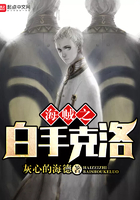"So, as I was saying," continued Sancho, "as the pair of them were going to sit down to table, as I said, the labourer insisted upon the gentleman's taking the head of the table, and the gentleman insisted upon the labourer's taking it, as his orders should be obeyed in his house; but the labourer, who plumed himself on his politeness and good breeding, would not on any account, until the gentleman, out of patience, putting his hands on his shoulders, compelled him by force to sit down, saying, 'Sit down, you stupid lout, for wherever I sit will he the head to you; and that's the story, and, troth, I think it hasn't been brought in amiss here."
Don Quixote turned all colours, which, on his sunburnt face, mottled it till it looked like jasper. The duke and duchess suppressed their laughter so as not altogether to mortify Don Quixote, for they saw through Sancho's impertinence; and to change the conversation, and keep Sancho from uttering more absurdities, the duchess asked Don Quixote what news he had of the lady Dulcinea, and if he had sent her any presents of giants or miscreants lately, for he could not but have vanquished a good many.
To which Don Quixote replied, "Senora, my misfortunes, though they had a beginning, will never have an end. I have vanquished giants and I have sent her caitiffs and miscreants; but where are they to find her if she is enchanted and turned into the most ill-favoured peasant wench that can be imagined?"
"I don't know," said Sancho Panza; "to me she seems the fairest creature in the world; at any rate, in nimbleness and jumping she won't give in to a tumbler; by my faith, senora duchess, she leaps from the ground on to the back of an ass like a cat."
"Have you seen her enchanted, Sancho?" asked the duke.
"What, seen her!" said Sancho; "why, who the devil was it but myself that first thought of the enchantment business? She is as much enchanted as my father."
The ecclesiastic, when he heard them talking of giants and caitiffs and enchantments, began to suspect that this must be Don Quixote of La Mancha, whose story the duke was always reading; and he had himself often reproved him for it, telling him it was foolish to read such fooleries; and becoming convinced that his suspicion was correct, addressing the duke, he said very angrily to him, "Senor, your excellence will have to give account to God for what this good man does. This Don Quixote, or Don Simpleton, or whatever his name is, cannot, I imagine, be such a blockhead as your excellence would have him, holding out encouragement to him to go on with his vagaries and follies." Then turning to address Don Quixote he said, "And you, num-skull, who put it into your head that you are a knight-errant, and vanquish giants and capture miscreants? Go your ways in a good hour, and in a good hour be it said to you. Go home and bring up your children if you have any, and attend to your business, and give over going wandering about the world, gaping and ****** a laughing-stock of yourself to all who know you and all who don't. Where, in heaven's name, have you discovered that there are or ever were knights-errant? Where are there giants in Spain or miscreants in La Mancha, or enchanted Dulcineas, or all the rest of the silly things they tell about you?"
Don Quixote listened attentively to the reverend gentleman's words, and as soon as he perceived he had done speaking, regardless of the presence of the duke and duchess, he sprang to his feet with angry looks and an agitated countenance, and said -But the reply deserves a chapter to itself.















